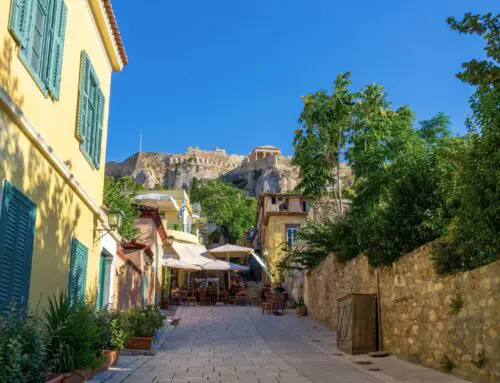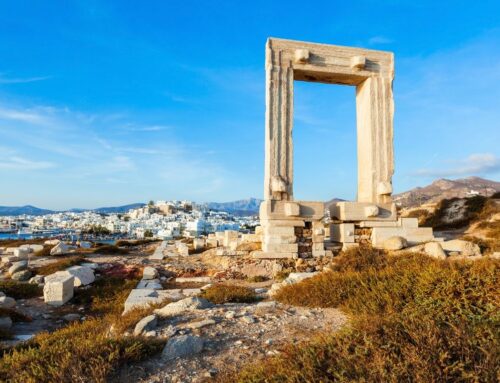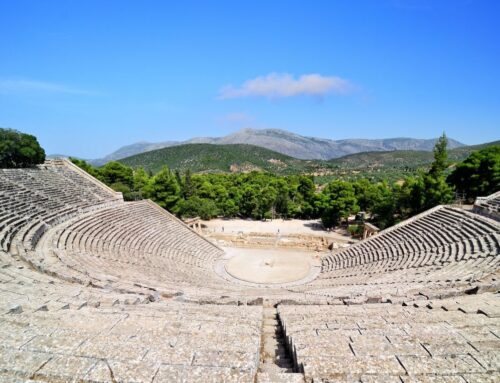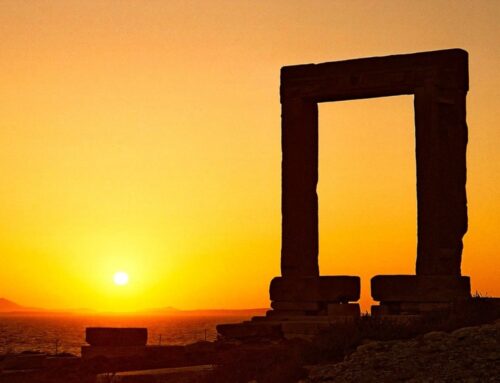Exploring Athens And Uncovering The Secrets Of The Seven Hills
Exploring Athens And Uncovering The Secrets Of The Seven Hills

☞ Table of Contents:
Like the seven hills of Rome, Athens too is founded on seven hills. While being high up on the Acropolis surrounded by ancient ruins is a spectacular experience, perhaps you didn’t venture further astray to the other high points of Athens, or perhaps you did but you weren’t quite sure what it was you were exploring. Athens was, according to legend, built on seven hills. These hills have a complex and diverse history, as do many things in Greece, and are sometimes quite simply just the perfect place to watch the sunset. So it’s time to take a closer look.
The Acropolis
Probably the most well known of all the hills in Athens is the Acropolis, home to the Parthenon. Dating as far back as 432 BC, the Acropolis is often the first thing people head off to explore when visiting Athens. With ancient ruins such as the theatre of Dionysus, the Odeon of Herodes Atticus, the Erechtheion and the Temple of Athena Nike. This is an excellent place to learn about the age of antiquity and see an abundance of history all in one place. To access this one you’ll need to pay an entrance fee. However, if you aren’t planning on doing so there are the other hills of Athens that have fantastic views of the Acropolis and history of their own.
👉 Related: The Best Way To See The Acropolis In Summer
Areopagus Hill
Areopagus hill is the hill that lies at the base of the Acropolis and is a popular vantage point for tourists as it offers great views of the Acropolis, the ancient Agora, Stoa of Attolos and beyond. It’s the perfect place to settle in for a spectacular Athenian sunset. As well as excellent views, Areopagus has mythical, religious and historical significance. In myths, Areopagus is also known as Mars hill after the Roman God of war. According to legend, Areopagus hill was the very place where Ares the Greek God of war stood trial for murdering Poseidon’s son. This site also has religious significance as the place where the Apostle Paul preached. This sermon is on a bronze plaque at the bottom of the hill. After exploring the Acropolis it’s right near the exit, so this destination is a must.
👉 Related: Is The Agora In Athens Better Than The Acropolis?
Hill Of The Nymphs
At the end of the Thissio flea market along Apostólou Pávlou (Apostle Paul Avenue) you will find the Hill of the Nymphs. The hill got its name as it was once the location of a sanctuary dedicated to the Nymphs who were deemed the protectors of fertility and marriage. This sanctuary dates back to the end of the 7th century BC and archaeological digs have uncovered many handcrafted terracotta figures that were most likely offerings to these deities. At the top of this hill is the church of Agia Marina and the National Observatory, where you can take astronomy tours Monday through to Friday. While exploring Athens it’s nice to escape the hustle and bustle and this hill is far less crowded than that of the Acropolis.
👉 Related: 10 Unforgettable Markets You Need To Visit In Athens
Pnyx
The Pnyx is probably one of the most important places in Athens, but also one that is easily missed. Aside from a couple of worn information signs this spot isn’t immediately obvious, nor extraordinary to look at. As you explore further on from the Hill of the Nymphs on your way to Phillopappos hill you will come to a rocky clearing with some stairs and a stone with the inscription ‘orators bema’. Beginning in 507 BC this spot was used by many renowned Greek statesmen, such as Pericles, Aristides and Alcibiades. Greece is after all the birthplace of democracy, but the Pnyx is where the beginnings of this actually took place. Here, thousands of free citizens would gather to vote on important issues. Despite the Acropolis vastly overshadowing its importance, the Pnyx cannot me missed.
Hill Of The Muses
If you continue up from the Pnyx you will eventually get to the highest point in this area and what is called Philopappos hill or the Hill of the Muses. Along this route you will have an excellent view of the Acropolis and also the Parthenon. You won’t miss it, as adorning the top of this hill is the Philopappu Monument, dedicated to Gaius Julius Antiochus Epiphanes Philopappos, a Prince of the ancient Kingdom of Commagene, from whom the hill got its name. This monument was constructed in 119 AD in honor of the Roman general, however, in antiquity the hill was called the Hill of the Muses as people believed the hill was inhabited by muses and that the poet Musaeus is buried in the area.
Lycabettus
Lycabettus hill like Areopagus is a very popular destination to watch the sunset, so you’ll be competing for a spot with an unobscured view. But Lycabettus hills vantage point is unbeatable, with a view of the Acropolis, the surrounding mountains and all the way out to the sea, you can understand why so many people hike to its peak every evening. There are several spots you can set up to watch the sun go down. If you don’t want to climb to the very top there are places further down that provide an equally good photo opportunity. Even better there is a funicular if you want to avoid walking altogether. At the top of Lycabettus hill there is the Saint George church and the Orizontes Lycabettus restaurant, fine dining with some of the best views over Athens.
Tourkovounia
Tourkovounia which translates to Turkish mountains is the tallest of the seven hills in Athens. Because of this it offers great views of the city. This location was used by the Turks in the later years of the Greek War of Independence and it is also said that a Turkish cemetery existed in this location, hence the name. While a bit further afield, this hill is harder to access, but for those keen to visit all seven hills it is definitely possible if you’re willing to cover the extra distance!
*Disclaimer: This page includes affiliate links. If you decide to book something through one of them, I might get a little bonus, but it won't cost you anything extra.*


























